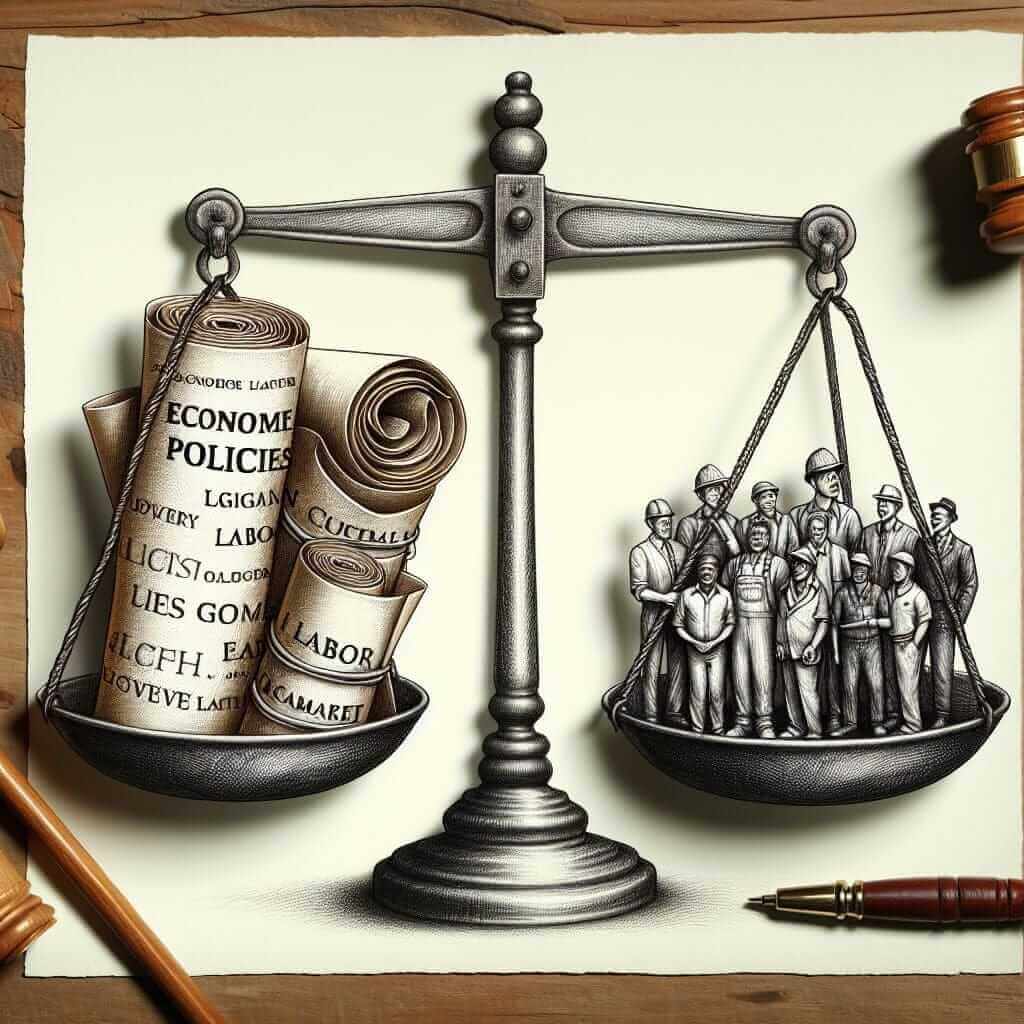Economic policies can significantly influence labor markets worldwide. Recently, this topic has garnered considerable attention, making it a frequent subject for IELTS writing tasks. In this article, learners will gain a deeper understanding of “The effects of economic policy on labor markets” through a detailed sample essay and an extensive analysis.
Introduction
Understanding the effects of economic policy on labor markets is essential for any IELTS candidate aiming for higher scores. This topic not only tests one’s grasp of economics but also their ability to present arguments efficiently. Students can expect different variations of this topic in the actual IELTS exam, such as:
- Discuss the impact of economic policy on employment rates.
- How do economic policies affect wage levels in labor markets?
- Evaluate the effects of government intervention on labor markets.
Sample Task 2 Prompt
Let’s choose the second prompt to develop a comprehensive response:
“How do economic policies affect wage levels in labor markets? Discuss.”
Task Analysis
Question Type: Direct Question
Main Topic: Economic policies and their effects on wage levels
Subtopics:
- Types of economic policies (fiscal, monetary, labor laws, etc.)
- Effects on wage inflation, minimum wage legislation, and skill-based wage disparities.
Writing Sample
Economic policies profoundly shape labor markets, especially concerning wage levels. The scope of these effects ranges from legislative actions like minimum wage laws to broader fiscal and monetary policies that indirectly affect employment and income distribution. This essay examines how economic policies influence wage levels in labor markets.
To begin with, minimum wage legislation is one of the most direct forms of economic policy impacting wages. Governments often introduce minimum wage laws to protect low-income workers from exploitation. For example, an increased minimum wage can lift millions out of poverty by ensuring a basic living standard. However, opponents argue that too high a minimum wage might lead to job losses, as employers may reduce their workforce or increase prices to offset higher labor costs.
Fiscal and monetary policies also have a significant, though more indirect, impact on wage levels. Fiscal policies, including taxation and government spending, can stimulate or depress economic activity—thereby affecting employment rates and wage levels. An expansionary fiscal policy, like increased government spending on infrastructure, boosts job creation, which in turn raises wage levels due to higher demand for labor. Conversely, contractionary fiscal measures can reduce jobs and suppress wage growth.
Furthermore, monetary policy plays a critical role in shaping wage dynamics. Central banks use tools like interest rates and money supply control to manage economic growth. A low-interest rate environment can spur economic activity, leading companies to hire more workers and consequently increasing wages. However, if expansionary monetary policies lead to inflation, the real value of wages might not increase commensurately, thereby affecting purchasing power.
Lastly, labor market policies themselves transform wage structures. Policies favoring education and skill development result in a more skilled workforce commanding higher wages. Conversely, stringent labor market regulations can sometimes stifle wage growth by reducing labor market flexibility.
In summary, economic policies undeniably affect labor markets and wage levels in multifaceted ways. While direct legislations like minimum wage laws have clear and immediate effects, fiscal and monetary policies exert subtle yet substantial influence. Understanding these dynamics is crucial for policymakers aiming for equitable and sustainable wage growth.
Word Count: 331
Important Considerations While Writing
Vocabulary and Grammar
Here are some key points to consider regarding vocabulary and grammar specific to this topic:
- Vocabulary: Use terms like “minimum wage legislation”, “fiscal policies”, “monetary policies”, “wage inflation”, and “labor market flexibility”.
- Grammar: Ensure proper use of complex sentences to show linguistic proficiency. Example: “While direct legislations like minimum wage laws have clear and immediate effects, fiscal and monetary policies exert subtle yet substantial influence.”
Complex Sentences Structure
- Relative Clauses: “Governments, which introduce minimum wage laws, aim to protect workers.”
- Conditionals: “If the minimum wage is raised too high, employers might reduce their workforce.”
- Passive Voice: “Wage levels can be significantly influenced by fiscal policies.”
Key Vocabulary
Here are some challenging words from the essay, along with their meanings and phonetic transcriptions:
- Legislation (n) /ˌledʒ.ɪsˈleɪ.ʃən/ – Laws, considered collectively.
- Inflation (n) /ɪnˈfleɪ.ʃən/ – The rate at which the general level of prices for goods and services is rising.
- Expansionary (adj) /ɪkˈspænʃənəri/ – Intended to expand economic activity.
- Contractionary (adj) /kənˈtrækʃənəri/ – Reducing the level of economic activity.
- Commence (v) /kəˈmens/ – To begin or start.
Conclusion
Understanding the impact of economic policies on labor markets is crucial for achieving high scores in IELTS Task 2 writing. By focusing on various data points and implications, candidates can not only answer the question comprehensively but also showcase their analytical skills. Practice additional topics like “The effects of globalization on income inequality” or “The impact of globalization on employment opportunities” here and here.

By focusing on these aspects and employing well-structured arguments, one can excel in writing tasks related to economic policies and labor markets.